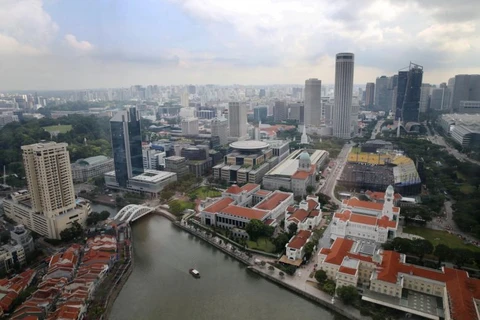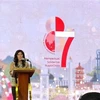 The tight manpower situation in Singapore is due mainly to an ageing workforce, low total fertility rate and greater restrictions on the inflow of foreign manpower due to social and political factors, according to the report.(Photo: New Straits Times)
The tight manpower situation in Singapore is due mainly to an ageing workforce, low total fertility rate and greater restrictions on the inflow of foreign manpower due to social and political factors, according to the report.(Photo: New Straits Times) Singapore (VNA) – A new Ministry of Ageing, coordinating closely with the Manpower and Education Ministries, could help the authorities resolve emerging challenges such as the displacement of mature professionals, managers, executives and technicians (PMETs) due to automation.
The new ministry should have a division to mitigate the incidence of ageism in employment, particularly as PMETs account for more than half of the country’s workforce, according to a report launched on July 11 by senior research fellow Faizal Yahya from the Institute of Policy Studies.
Discussing the challenges of economic disruption, and Singapore’s strategies to retrain its workers, Faizal said the ministry of aging may be required to cover a gamut of concerns from manpower to healthcare.
Tight manpower situation in Singapore is due mainly to an ageing workforce, low fertility rate, and greater restrictions on the inflow of foreign manpower due to social and political factors. Greater restrictions placed on the hiring of foreign employees since 2011 have resulted in a growing reliance on local manpower in an aging workforce, the report noted.
Regarding education, Faizal believed that the process of education is no longer linear, but a continuous cyclical process that follows industry cycles. Therefore, links between industry and institutes of higher learning should be strengthened.
To this end, the collaboration between Manpower and Education ministries will support the shift in human capital trends.
If the Ministry of Ageing can oversee the supply and demand for labour, better coordination and timely government intervention would help policy-making.
The World Economic Forum projected that 7.1 million jobs could be lost globally from 2015 to next year due to disruptive labour-market changes with the rise of the digital economy, although two million jobs would be created in fields such as information technology.
Singapore is placing bets on becoming a smart nation to maintain its role and position in the region and the world. However, Faizal said that digital development strategy must encompass the needs of its human capital to adapt and benefit from ongoing economic disruption.-VNA
VNA
























